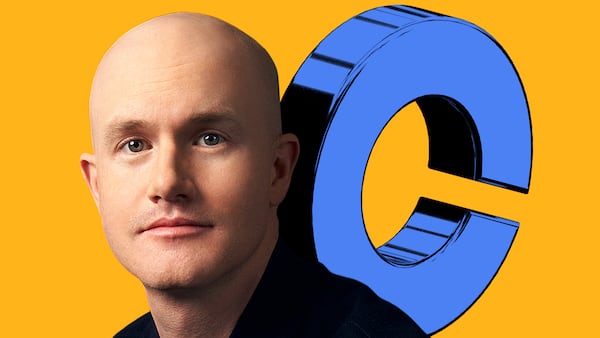- Coinbase CEO says company aims to replace banks.
- Armstrong slams banks’ attempt to ban stablecoin rewards.
Coinbase’s CEO says the crypto exchange is no longer just a trading venue — it’s building a fintech “super app” that can replace legacy banks.
“We do want to become a super app and provide all types of financial services,” Brian Armstrong told Fox Business. “We want to become people’s primary financial account.”
Armstrong also hit back against the banking lobby for “throwing a wrench into things” by responding to the challenge from crypto companies by warning that a new US stablecoin law, the Genius Act, risks draining some $6 trillion in deposits from banks.
US President Donald Trump signed the Genius Act into law this summer.
“I’m not too worried about it,” Armstrong said. “The senators we spoke to aren’t really going to entertain re-opening that issue.”
Armstrong’s comments highlight the growing tension between legacy financial players and the new breed of crypto companies that aim to merge the worlds of traditional finance and digital assets.
Trump administration
They follow a flurry of pro-crypto moves from the Trump administration.
In the first nine months of Trump’s second term, he has fired off a barrage of pro-industry executive orders, held the White House’s first crypto summit, and appointed a smattering of crypto backers into key government positions.
One of them is the new chair of the Securities and Exchange Commission, Paul Atkins.
In July, Atkins unveiled Project Crypto, a deregulation blitz aimed to overhaul securities guidelines, encourage tokenisation, and enable financial firms to offer crypto and traditional assets under one roof. Thus, Project Crypto paves the way for so-called financial super apps.
The term “super app” is often used by companies to encapsulate the idea that their platform offers a one-stop shop for all their users’ needs. In fintech circles, it usually signals that the platform offers everything from payments to banking accounts — or that’s their goal, at least.
Robinhood and Revolut are two examples of fintech firms that have provided versions of these all-in-one super apps. In recent years, those companies have added crypto-trading as a key service, putting them on a collision course with crypto companies.
Crypto firms have responded by rolling out services that would, traditionally, be found at fintech firms.
Coinbase has, for instance, launched a debit card in collaboration with Visa, and has announced plans to become an “everything exchange,” as Armstrong called it in July.
Armstrong plans to allow firms to offer trading in crypto securities, commodities, and traditional stocks under a single license. He also wants to streamline custody rules, enable tokenisation of equities, and create exemptions for projects to launch without burdensome registration.
All this could, eventually, amount to crypto companies like Coinbase potentially replacing traditional banks.
“These are just more modern, efficient rails that make every payment and the economy fast and cheap,” Armstrong said.
Crypto market movers
- Bitcoin is down 2.7% over the past 24 hours to trade at $112,686.
- Ethereum is down 6.3% over the past 24 hours trading at $4,1899.
What we’re reading
- Vitalik Buterin embraces ‘low-risk DeFi’ as key Ethereum revenue driver — DL News
- Stablecoin startups raise record amounts as total supply seen to hit $1tn— DL News
- The Onchain5 Part 2: Robinhood and Stripe Upgrade Finance’s Back End — Unchained
- Jupiter: The rising super-app — Milk Road
- Nigerian man sentenced to six years in prison over $2m romance scam in Colorado— DL News
Lance Datskoluo is DL News’ Europe-based markets correspondent. Got a tip? Email at lance@dlnews.com.









